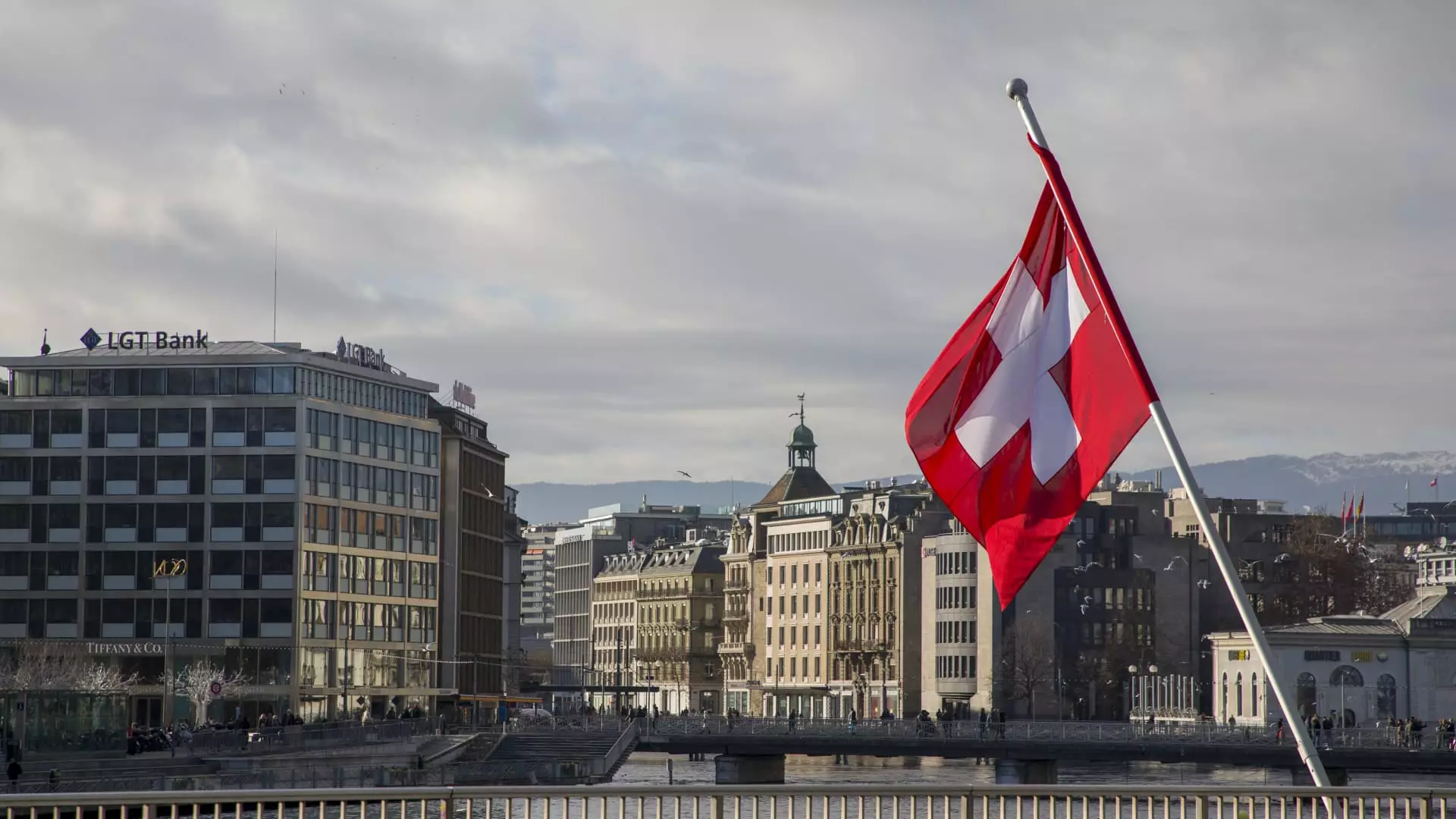In the wake of political turmoil and economic uncertainty, a profound trend is emerging among wealthy Americans: the exodus of capital to Swiss banks. Once considered an elite strategy punctuated by secrecy, opening accounts in Switzerland has morphed into a remarkably common practice. This movement reflects a broader sentiment of instability—a panic-induced search for stability in an increasingly unpredictable world. With inflation rising and political corruption marred by previous administrations, individuals with significant assets are left questioning the viability of solely relying on American banks.
The Allure of Swiss Stability
Switzerland’s allure lies not just in its breathtaking landscapes but in its dogged commitment to neutrality, a stable economy, and a transparent legal framework. Wealthy investors are understandably drawn to the country’s promise of protection against the vagaries of political change. The U.S. dollar, long considered a safe haven, is increasingly viewed with skepticism, especially as national debt spirals out of control. Yet, flocking to Switzerland reflects more than just an effort to escape currency risk; it reveals the deeper anxiety surrounding the state of democracy and the rule of law back home.
Are these wealthy elites simply sheltering their assets, or are they signalling a more serious indictment of American governance? The messages are troubling: “If things go awry in my country, I prefer to have options.” When individuals with immense wealth make these decisions, it raises ethical questions: should the rich prioritize personal gain over civic responsibility?
Political Underpinnings and Its Consequences
The decision to establish Swiss accounts often stems from a feeling of abandonment by their government. Fueled by events—be it the election of Barack Obama or the recent contentious Trump-era policies—many high-net-worth individuals have cited political disenchantment as a reason for their financial reallocation. As they perceive a decline in the moral fabric of American leadership, these investors often look toward foreign soils, namely Switzerland, which they believe embodies the virtues lacking in their homeland.
This migration of wealth also reflects an implicit endorsement of an uncomfortable truth: the wealthiest Americans no longer believe their own country can safeguard their interests. It’s a scenario laced with irony, as it hints at an eroding faith in the very system that allowed them to prosper.
The Luxury of ‘Plan B’
For many, opening a Swiss bank account serves as a prenup with financial independence—a “Plan B” in the event the American dream turns nightmarish. The desire for residency or second citizenship in Europe inevitably contributes to a richer, albeit troubling, dialogue about privilege and protectionism. While the affluent seal their assets under foreign jurisdiction, the average American grapples with economic challenges unmitigated by the same personal safety nets.
In stark contrast, these elite few are leveraging their wealth, almost nonchalantly turning away from the nation that crafted their fortunes. While debates center around the rights of the wealthy, it begs the question: should the American populace continue to foster a system that allows such disparity in wealth protection? The profound implications of these behavioral shifts reveal more than just financial strategies; they unveil the fissures in the foundations of American societal belief, loyalty, and civic duty.
In this landscape of uncertainty, one must ponder—does the act of hoarding wealth** abroad signify an impending collapse, or is it merely an insurance policy against the machinations of unchecked power?


Leave a Reply